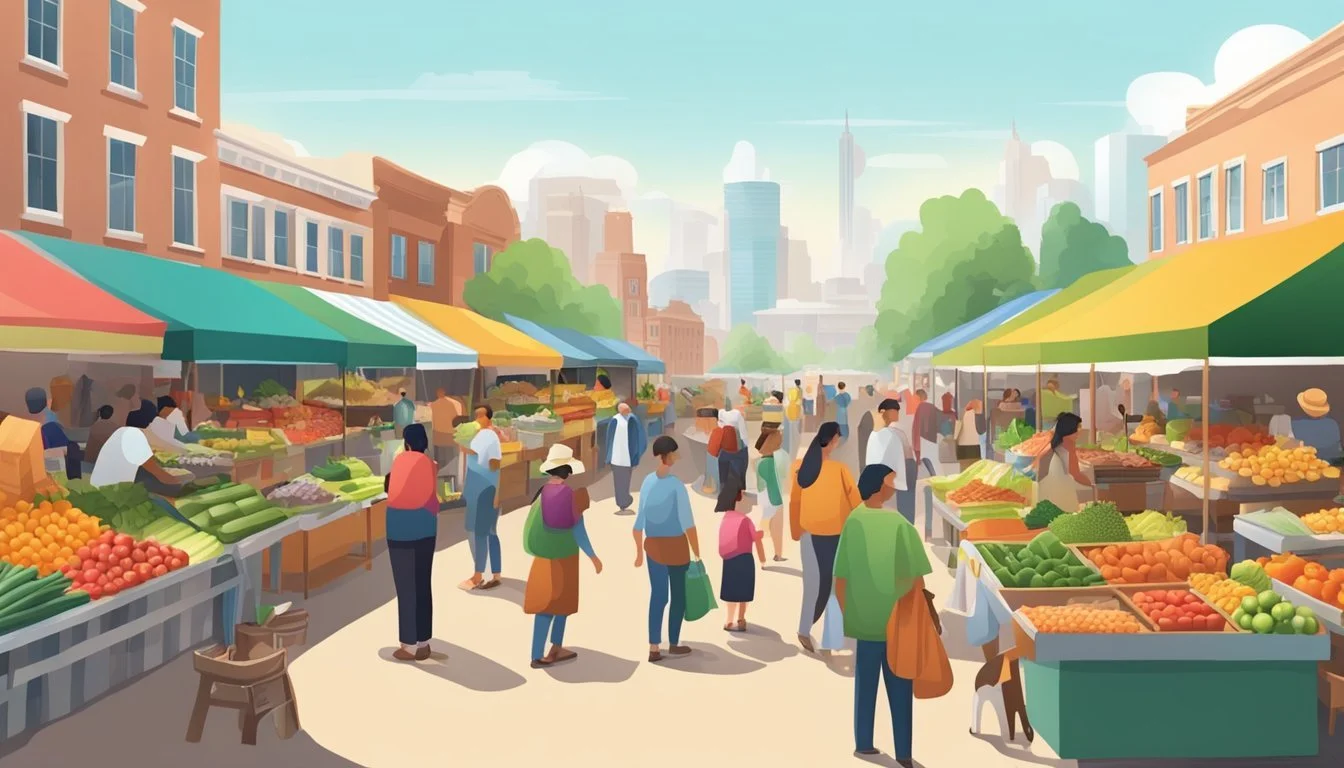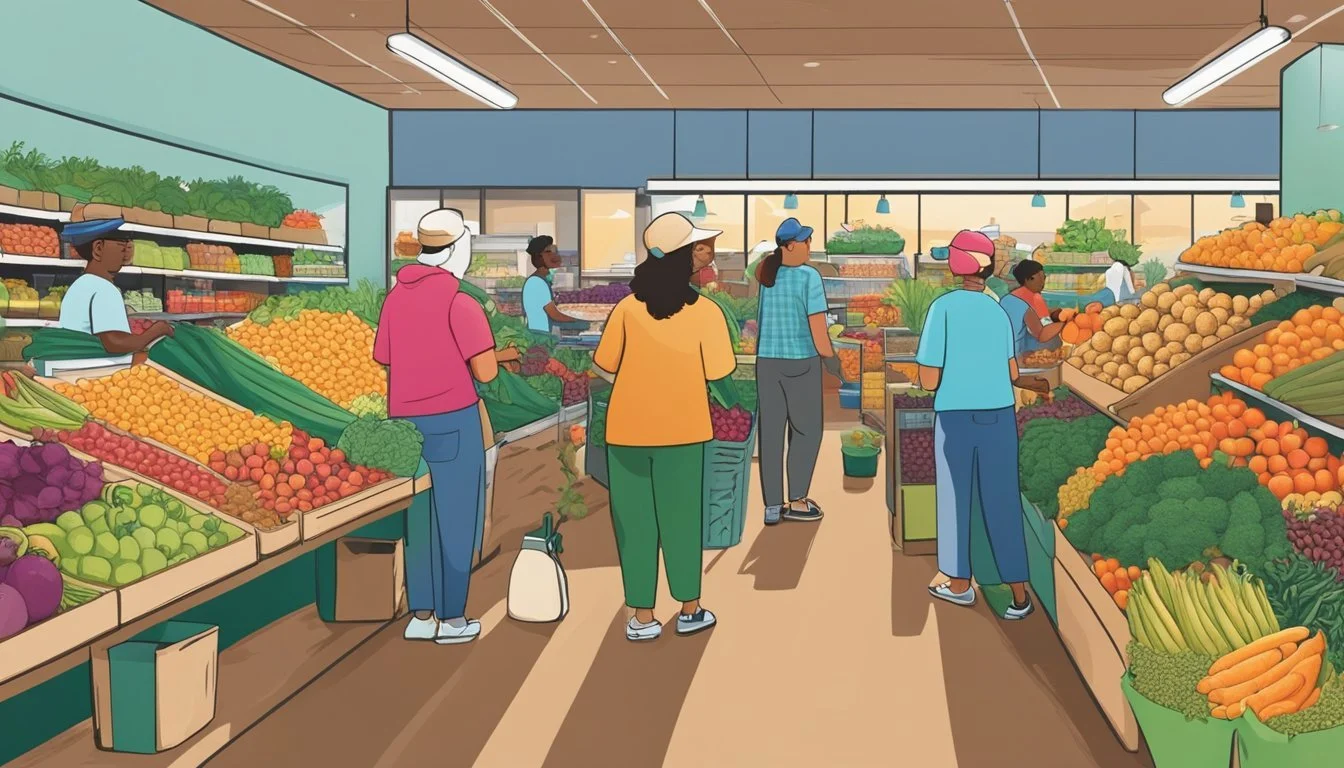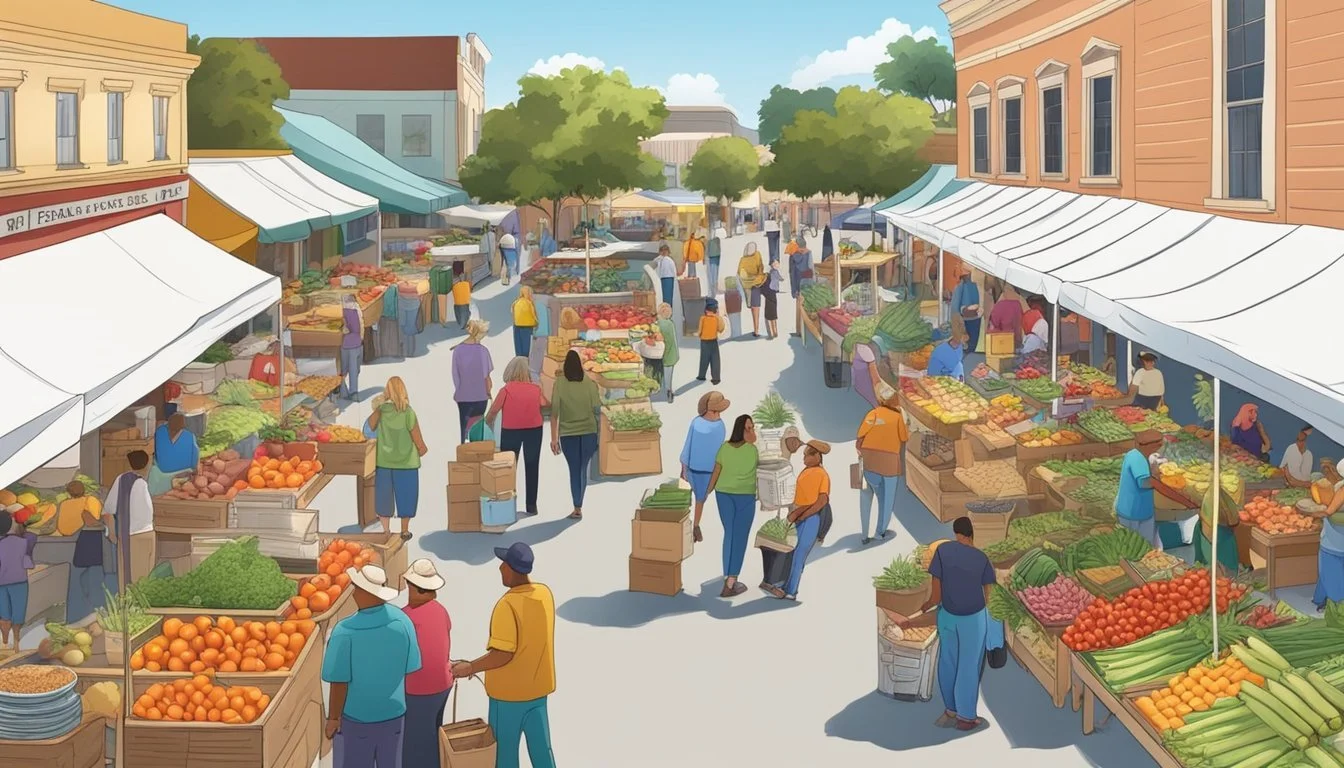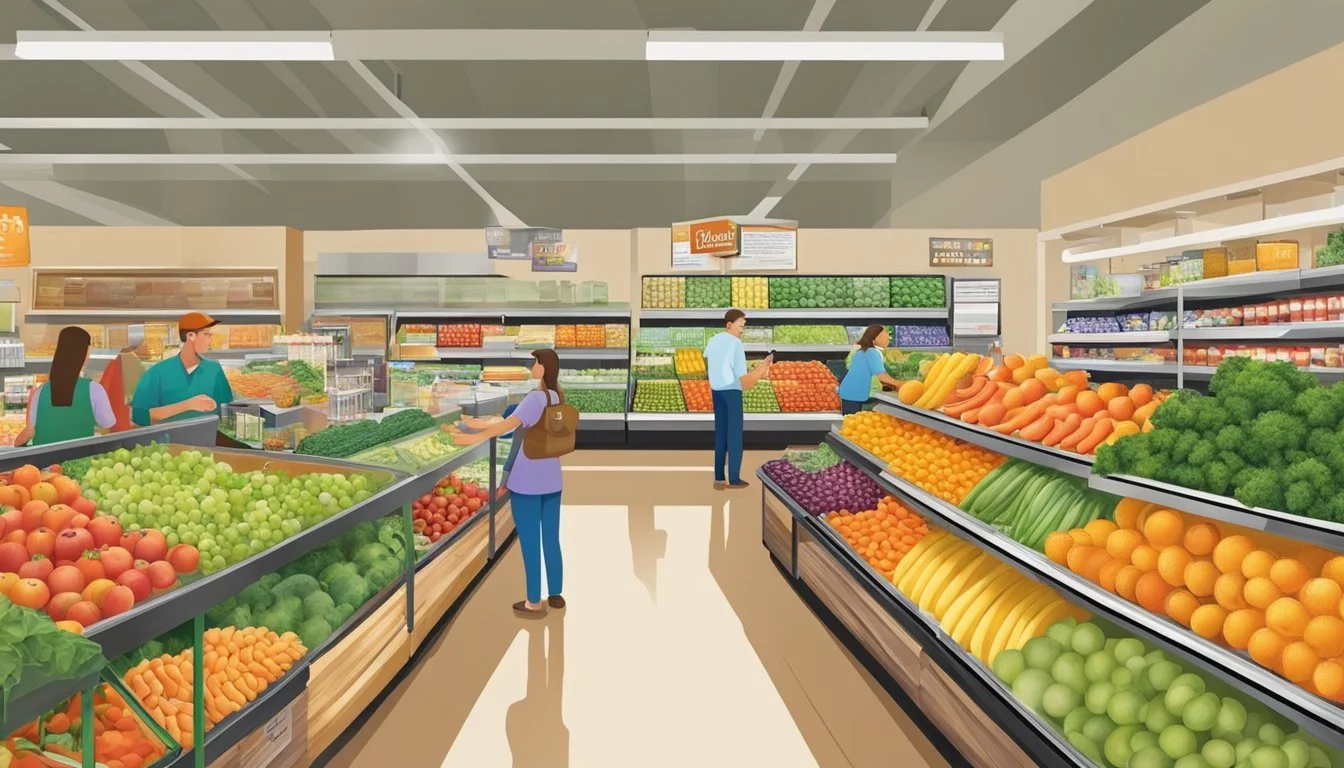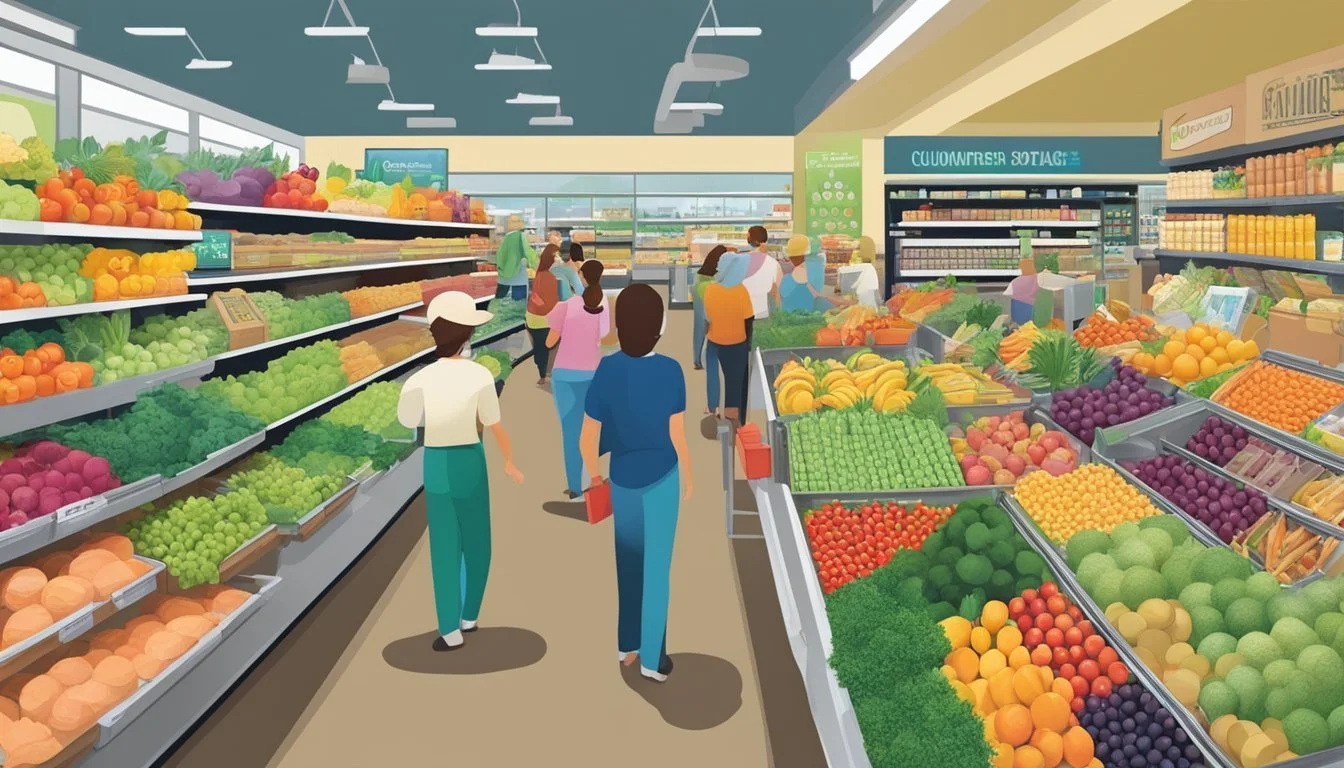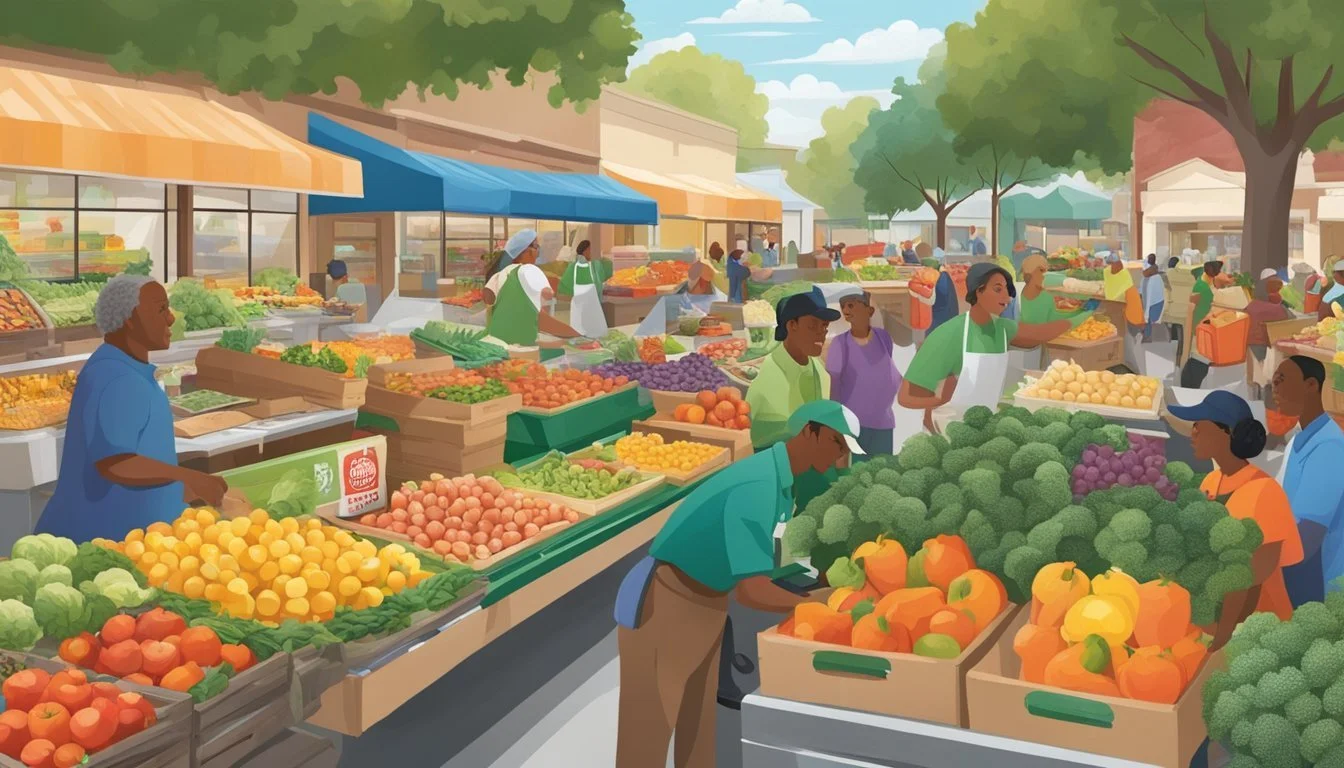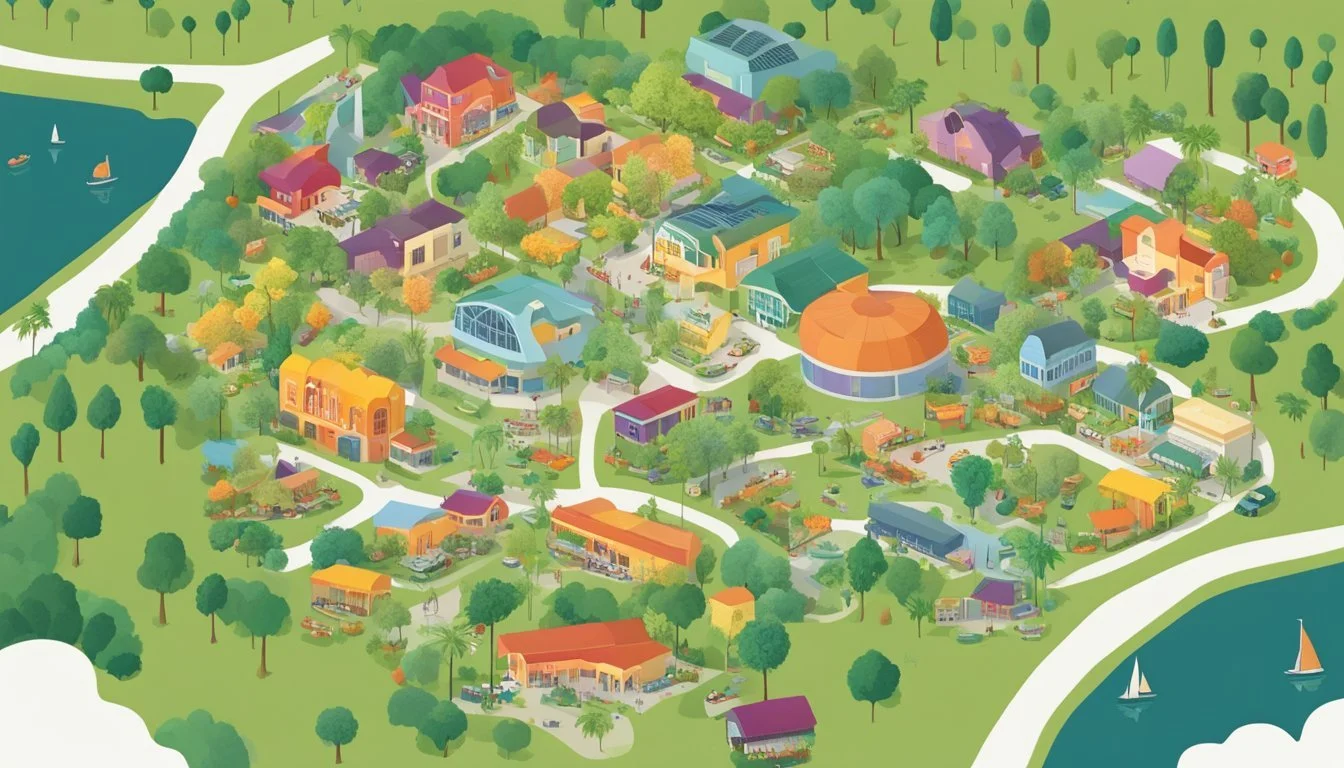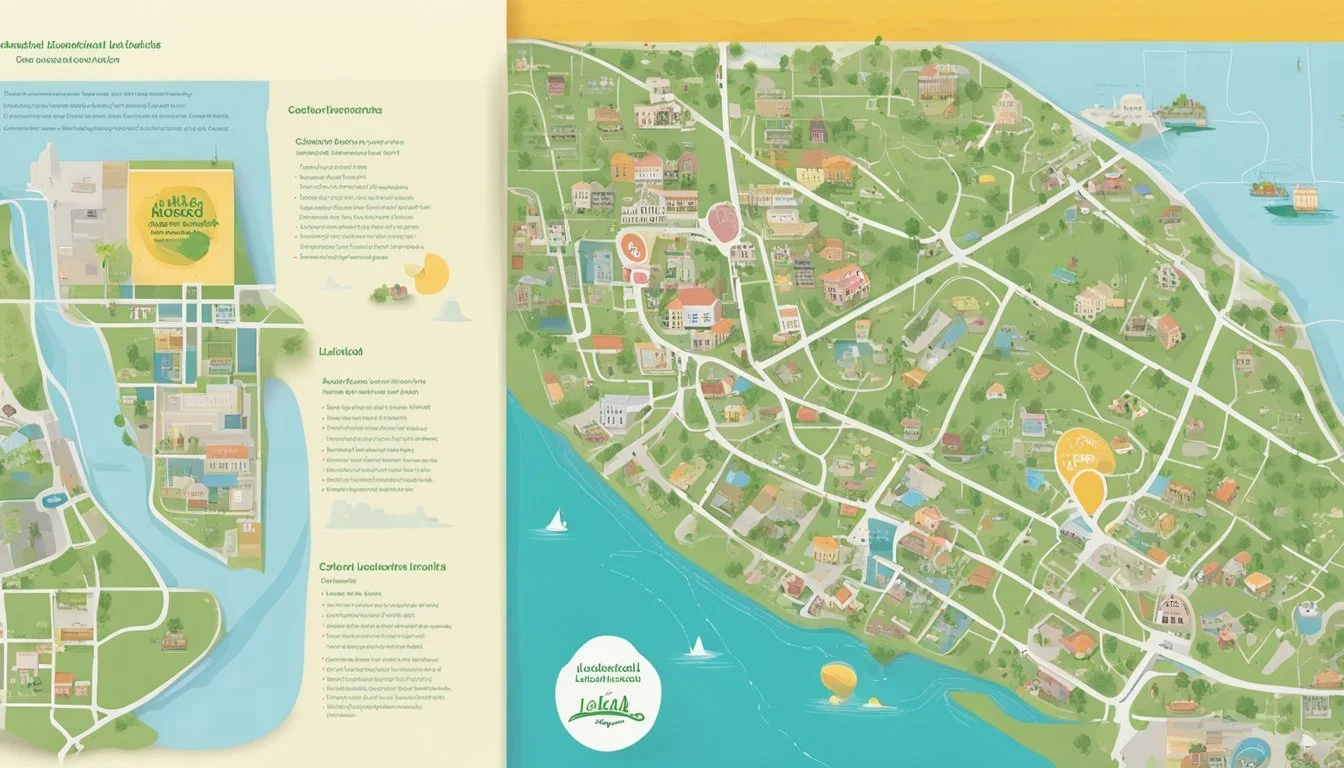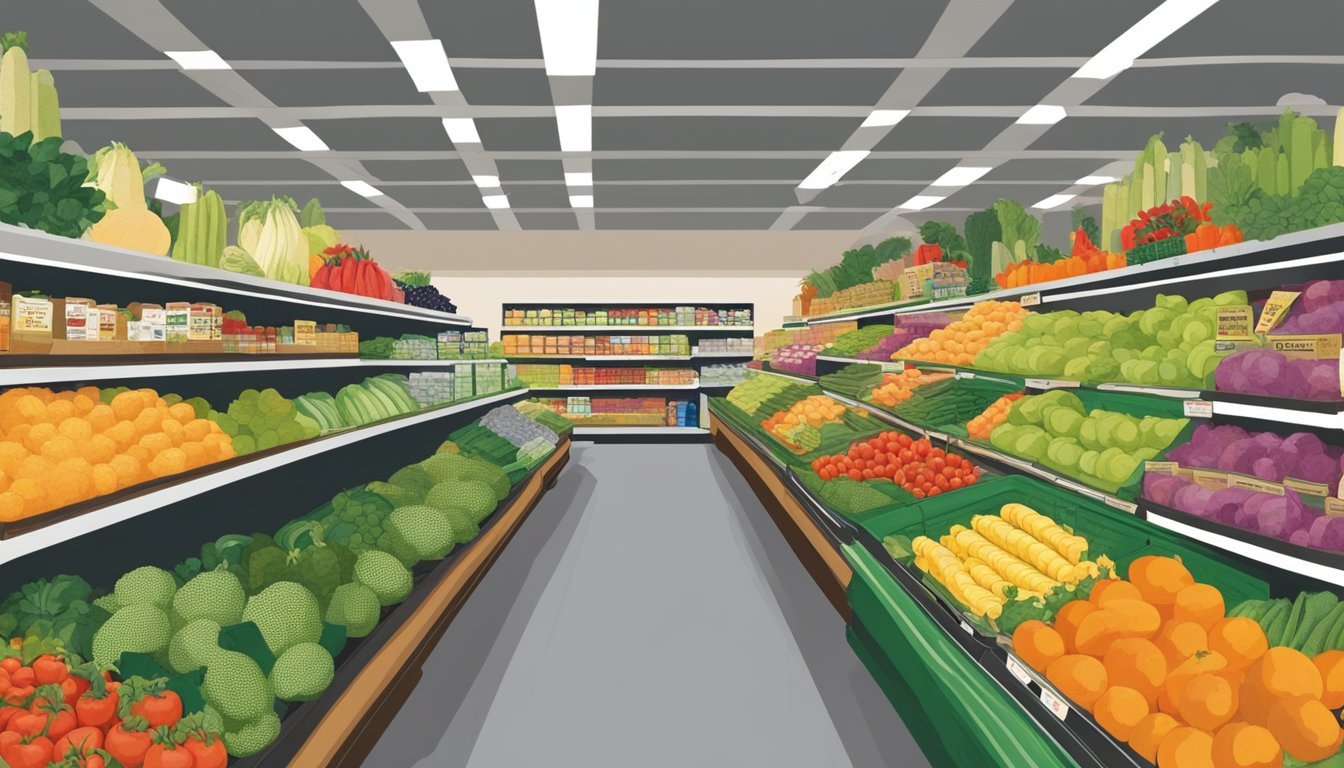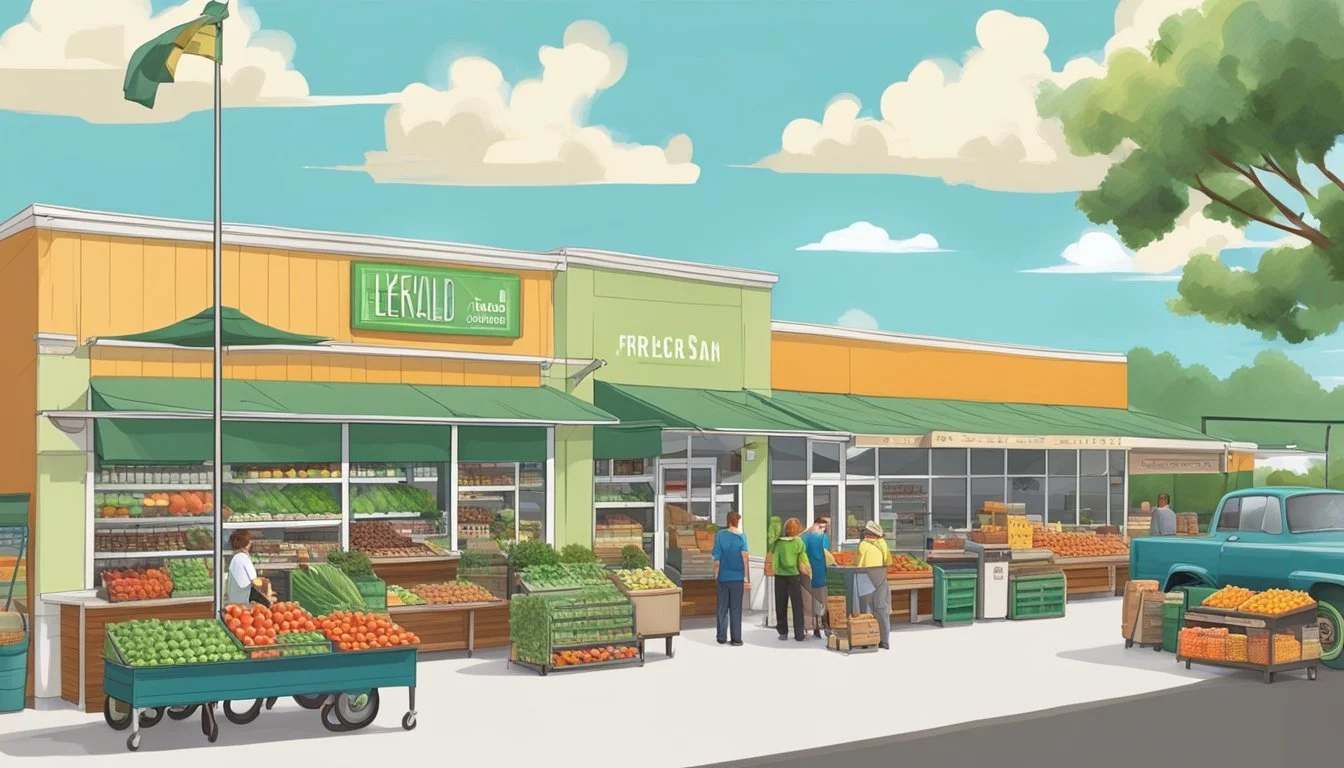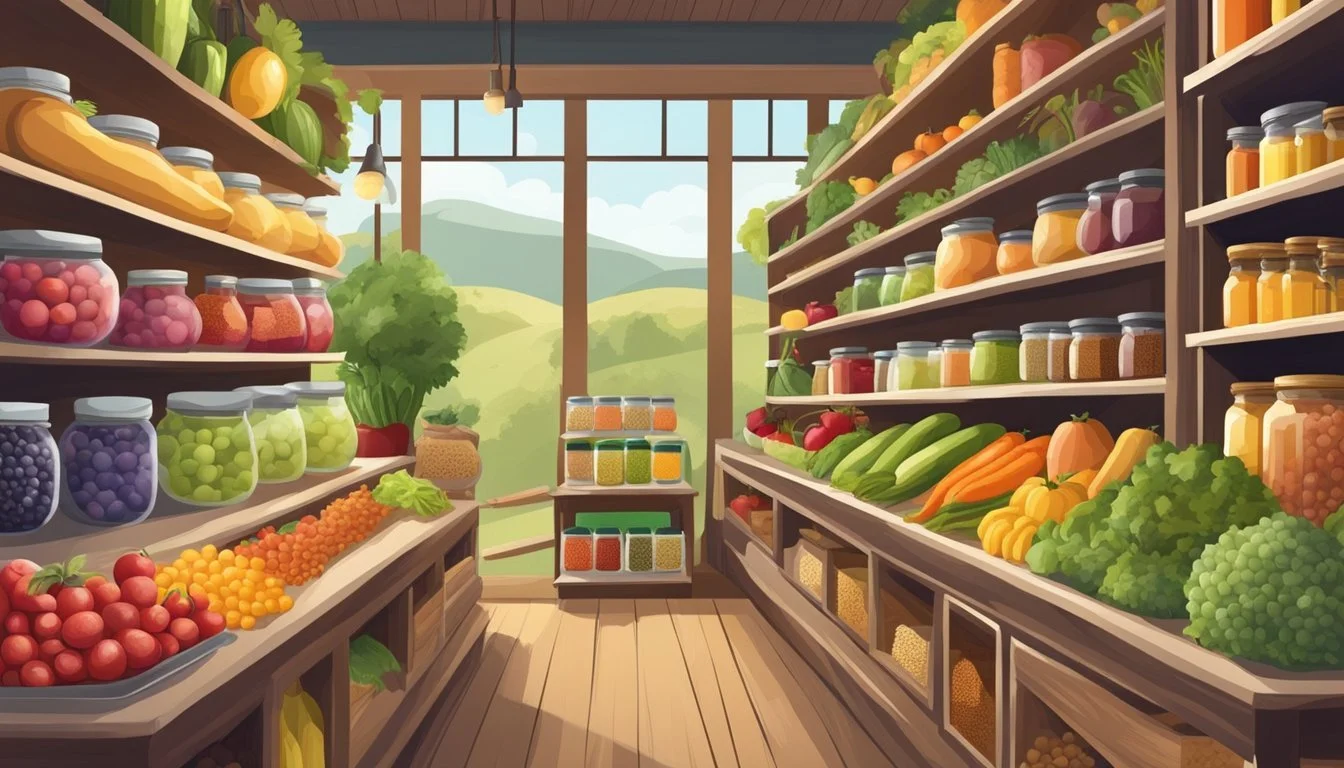Guide to Food Co-Ops in Lakeland, FL
Your Source for Local, Sustainable Groceries
Lakeland, Florida, a scenic city nestled in Central Florida, is a community where the food co-op model is thriving. Food co-ops, or cooperatives, are collaborative efforts that bring together individuals focused on quality, value, and sustainability in their food choices. These establishments are unique because they operate as democratically run organizations, with members having a say in the business's decisions. Not only do they offer food that is often organic and locally sourced, but they also prioritize consumer education and support for the local community.
In Lakeland, consumers seeking fresh, organic produce and artisanal food products have the opportunity to join food cooperatives, which provide a direct connection to local farmers and producers. This creates a food system that is more transparent, where consumers have greater insight into where their food comes from and the methods used in its production. The focus on local sourcing also has the added benefit of reducing the carbon footprint associated with long-distance food transportation.
By establishing partnerships with over two dozen local organic farms, food co-ops in Lakeland, such as The Farmacy in nearby Winter Garden, FL, boast an array of food items ranging from grass-fed beef to heritage pork, and from pastured eggs to raw milk. These co-ops not only contribute to a healthier lifestyle for their members but also foster a sense of community by bringing together individuals who share a commitment to sustainable and ethical food practices.
What is a Food Co-op?
A food co-op, or cooperative, is a business model where a grocery store is owned and controlled by the people who use its services. These community members, often referred to as member-owners, have the unique opportunity to influence the co-op's operations. They can play a role in decision-making, from selecting products to determining ethical sourcing practices.
In terms of community service, food co-ops often become hubs for local activity, strengthening community bonds and providing education on food-related issues. They typically promote sustainability, offer workshops on nutrition, cooking, and even food production.
Business-wise, what sets a food co-op apart from traditional grocery stores is its commitment to democratic management and profit-sharing among member-owners, rather than prioritizing outside investors. This structure ensures that the profits remain within the local community.
Here is a bullet list of key characteristics of food co-ops:
Owned and operated by members of the community
Focus on local and sustainably sourced food
Democratic decision-making processes
Profits are reinvested into the co-op or returned to members
Offer education on nutrition and sustainable living
In summary, a food co-op serves as much more than just a food retailer. It is an embodiment of community spirit, a place of education, and a sustainable business model rooted in cooperative principles.
Benefits of Joining a Food Co-op
Joining a food co-op provides a wealth of advantages for individuals interested in sustainable living and supporting local economies. Membership often results in access to fresh, organic produce, which is beneficial for personal health and environmental sustainability. These cooperatives often source high-quality fruits, vegetables, nuts, and other staples directly from local producers.
Advantages for Members:
Freshness: Members enjoy seasonal, fresh-from-the-farm produce, often harvested at the peak of ripeness.
Organic Options: A focus on organic goods supports health-conscious diets and eco-friendly agriculture.
Support for Local Farmers: Purchases help sustain local farmers and producers, keeping money circulating within the community.
Nutritional Benefits: Access to a diverse array of whole foods, such as nuts and fruits, encourages a balanced diet.
Health Care Impact: Co-ops may partner with health care initiatives to promote wellness through nutrition.
By investing in a co-op, member-owners have a say in business operations, influencing product selection to ensure a consistent supply of wholesome food options. They also participate in educational opportunities, learning more about nutrition and sustainable practices.
Economic Impact Highlights:
Keeps money in the local economy through purchases from area farmers.
Encourages ethical buying practices and fair trade.
Offers potential for member savings on groceries compared to regular markets.
Overall, food co-ops serve as community hubs, fostering relationships among those who value quality food and sustainable living.
List of Food Co-ops in Lakeland
In Lakeland, Florida, food co-ops play a crucial role in connecting consumers with high-quality, locally-sourced foods. These cooperative entities not only offer a platform for local commerce but also aim to educate their members about sustainable food practices.
Downtown Lakeland Food Co-op
Location: Downtown Lakeland
Products and Services: This co-op provides a range of organic produce, including fruits and vegetables sourced from over 25 local organic farms. It emphasizes on organic goods and also serves as a hub for community engagement and education.
South Lakeland Community Co-op
Location: South Lakeland Area
Products and Services: Focused on accessibility, the South Lakeland Community Co-op offers a selection of natural and organic foods. They're known for their committed support of local growers and producers, enhancing the region's food security.
North Lakeland Organic Co-op
Location: Northern region of Lakeland
Products and Services: The North Lakeland Organic Co-op stands out for its dedication to purely organic offerings. From pastured eggs to raw milk cheeses, this co-op is a testament to the community's commitment to wholesome, chemical-free food options.
Note: While this section does not provide maps or search functionality, individuals interested in visiting these locations are encouraged to look them up for exact addresses and operation hours.
Operating Hours and Contact Information
These local food co-ops and pantries in Lakeland, FL, provide valuable services to the community. They ensure residents have access to food resources with varied hours of operation to accommodate different schedules.
Hours of Operation
Seed Sowers Evangelistic Association: Mon-Fri, 7:30am-4:00pm
Feeding Tampa Bay: Check website for local pantry hours in Polk County.
The Farmacy Winter Garden: Hours not specified; contact for details.
Polk County Food Pantry: Mon-Fri, 8:00am-5:00pm
Saint Joseph Catholic Church Food Pantry:
Pantry Hours: Wednesdays 9:00am - 11:00am
Websites and Contact Details
Seed Sowers Evangelistic Association:
Phone: (863) 688-3200
Additional contact information may be available on their details page.
Feeding Tampa Bay:
Part of the Feeding America network with resources in West Central Florida.
Visit the Feeding Tampa Bay website for specific local contact details.
The Farmacy Winter Garden:
This co-op partners with local organic farms and providers.
Contact information might be found through the LocalHarvest website.
Polk County Food Pantry:
For eligibility details and more information, interested individuals should call.
Saint Joseph Catholic Church Food Pantry:
Phone: (863) 646-3219
No verification required for service; visit their website or contact directly for assistance.
Accessing Fresh and Affordable Groceries
Residents of Lakeland, FL, have several options for accessing fresh and affordable groceries, particularly through food cooperatives. These co-ops are designed to offer fresh produce, often focusing on organic and locally-sourced items. They balance quality with affordability and often involve a membership structure.
Local Food Co-ops:
Membership-based options provide consumers with a variety of organic fruits and vegetables.
Local meat, eggs, dairy, and pantry staples are typically available.
A small one-time membership fee and a per-order fee may apply.
Farmers Markets:
Farmers markets in the area are excellent sources of fresh produce.
They may also operate farm stands and participate in community-supported agriculture (CSA) programs.
Farm Stands and U-Pick:
Farm stands give consumers direct access to fresh produce from local farms.
U-pick options allow individuals to harvest their own fruits and vegetables.
For those in need, food banks and resources offer access to free food to ensure that all community members have access to nutritious meals.
Food Banks and Assistive Resources:
Various locations within the Lakeland area provide essential food items to those facing economic hardship.
Some cooperatives may work to make groceries more affordable for low-income individuals.
By supporting these community-centric initiatives, consumers in Lakeland can enjoy fresh groceries that often support local producers and sustainable practices. These outlets not only contribute to healthier lifestyles but also bolster the local economy and foster a sense of community engagement.
Community Services and Education
In Lakeland, Florida, community services and food education programs are integral to fostering a knowledgeable and engaged community. These services aim to educate residents about nutrition, food sourcing, and sustainable practices, while also providing volunteer opportunities for those looking to give back to their community.
Food Education Programs
Food education programs in Lakeland prioritize educating individuals and families about healthy eating habits and the benefits of locally sourced food. Organizations such as Feeding Tampa Bay offer resources that extend into Polk County, promoting knowledge about food insecurity and providing education on how to access nutritious food. Local food co-ops collaborate with organic farms to not only supply the community with fresh produce but also to educate on the importance of organic farming and its impact on both health and the environment.
Volunteer Opportunities
Volunteer opportunities within these food co-ops and community service organizations in Lakeland are abundant. Individuals can contribute their time and skills in various ways:
Assisting at local food banks: Helping to organize and distribute food to those in need within the community.
Educational outreach: Volunteers may engage in teaching or facilitating workshops on nutrition, cooking, and sustainable farming techniques.
Supporting local farmers markets: Involvement with the Winter Garden Farmers Market or similar venues where volunteers can help with setup, customer service, and promoting local goods.
These efforts not only strengthen community ties but also reinforce the importance of education and community service in building a more food-secure future for all residents.
Food Co-op Networks and Affiliates
In Lakeland, Florida, food co-operatives engage with various networks and affiliates to enhance the availability of fresh and locally sourced food, fostering community development through partnerships. These alliances range from local charity collaborations to larger organizational partnerships, each contributing a unique strength to the co-op fabric of Lakeland.
Feeding Tampa Bay Partnership
Feeding Tampa Bay, an extensive network serving the greater Tampa area, plays a vital role in supporting food co-ops by providing access to surplus fresh produce and pantry items. They emphasize the need for nutritious food options for all, making them a pivotal asset for local food co-operatives in Lakeland that aim to offer such selections to their communities.
United Way Collaboration
In a complementary fashion, United Way operates on a multifaceted level contributing to Lakeland's co-op scene. This organization is instrumental in connecting co-ops with resources and volunteers, leveraging its vast network to support food security initiatives. Their collaboration is strategic, aiming to address both immediate food needs and the systemic issues contributing to food insecurity.
Lighthouse Ministries Connection
Lastly, Lighthouse Ministries maintains a symbiotic relationship with food co-ops in the region by focusing on those most vulnerable. Many food cooperatives partner with Lighthouse Ministries to supply essential food items for their aid programs, thus expanding their reach to more individuals in need while simultaneously sustaining the cooperative movement's underlying ethos of community support.
Comprehensive Assistance Programs
In Lakeland, FL, individuals and families in need can find a range of comprehensive assistance programs that address areas such as counseling, mental health services, housing, and child care. These services are tailored to offer support and guidance, ensuring a better quality of life for the community's vulnerable members.
Counseling Services
The availability of counseling services in Lakeland extends to various facets of mental health and wellbeing. Organizations in the area offer both individual and group therapy options, focused on aiding those struggling with emotional and psychological challenges. Assistance with issues such as anxiety, depression, and stress management is frequently available.
Seed Sowers Evangelistic Association provides community support services that include mentoring and spiritual support, with contact through their mainline at (863) 688-3200.
Feeding Tampa Bay is part of the national Feeding America network, allocating resources towards addressing food insecurity as well as offering associated support that may encompass counseling services for affected individuals.
Healthcare and Childcare Support
Lakeland's assistance programs recognize the importance of healthcare, especially in the context of child care, ensuring that both physical and developmental needs are met.
Local programs offer support regarding healthcare, emphasizing the necessity for accessible services for children and adults alike. Childcare facilities are geared towards providing a stable environment for children, while parents may receive aid navigating healthcare systems.
Health Services Childcare Support Access to primary healthcare Safe and educational childcare environments Vaccination and preventive care Childcare financial assistance for eligible families
Community support programs often include initiatives targeted at housing stability, crucial for overall family welfare. This encompasses housing assistance and advocacy to ensure families have a safe place to live.
Seasonal Events and Food Distribution
In Lakeland, Florida, seasonal events and food distribution initiatives ramp up, particularly during holiday seasons. These events offer vital support to the community, ensuring food security through organized efforts such as mobile food pantries and specifically timed holiday distributions.
Thanksgiving and Holiday Events
During Thanksgiving and the broader holiday season, Lakeland hosts a variety of food distribution events. These are often scheduled in the calendar to allow residents to plan in advance. Thanksgiving-centric distributions focus on providing holiday meals (What wine goes well with holiday meals?) and ingredients to families in need. The community can find these events advertised at local community centers and through nonprofits that specialize in food assistance.
Key Thanksgiving Distribution:
Date: Typically held in November
Focus: Offering turkeys and other holiday foods to ensure a celebratory meal for those in need
Mobile Food Pantries
Mobile food pantries operate throughout the year in Lakeland, with a higher frequency during the holiday seasons to accommodate increased demand. They provide a range of perishable and non-perishable items. Residents can typically find a mobile food pantry operating on a bi-weekly schedule, ensuring regular access to food supplies.
Regular Mobile Pantry Schedule:
Timing: Every second and fourth Tuesday, 11:00 AM - 1:00 PM
Location Check-In: Parking lot at 4730 Lakeland Highlands Rd., Lakeland
By staying aware of the calendar and schedule of these food distribution events, Lakeland residents can access necessary food resources in times of need.
Location-Based Resources
In Lakeland, FL, and its surroundings, residents can benefit from various food co-op initiatives specifically tailored to the needs of each location. These community-based programs offer support through food distribution and are designed to cater to the local population with consideration for accessibility and collaborative efforts.
Winter Haven Co-op Initiatives
Winter Haven offers a series of co-op initiatives that focus on both affordability and community development. They prioritize providing access to fresh, organic produce and pantry staples to their residents. These programs often depend on volunteer participation and provide educational resources along with their food services.
Bartow Co-op Programs
In Bartow, FL, co-op programs are a significant part of the community’s effort to address food insecurity. The Bartow co-op programs collaborate with regional farmers and producers to supply a range of fresh foods. Bartow's community service efforts are known for involving local citizens in the process, thereby strengthening the community bond and ensuring that these programs are well-tailored to the unique needs of Bartow residents.
Mulberry Co-op Outreach
The Mulberry Community Service Center extends its co-op services to the local area with a focus on outreach and assistance. Their operations hinge on inclusiveness and offering aid to those in immediate need. These programs often provide not just food, but also support services to improve overall well-being within the Mulberry community.
Food Assistance Referrals and Access
In Lakeland, FL, individuals in need can rely on a structured network of food assistance programs. Food pantries and banks are pivotal in addressing food insecurity, ensuring that no one goes hungry.
Food Pantries in Lakeland: These community-based, non-profit organizations offer direct food support to those in need. They typically operate on specific days and hours. For instance, some pantries in Lakeland provide assistance on the 2nd and 4th Tuesday of the month from 10:00 am to 2:00 pm. These are vital for low-income families and individuals seeking immediate food assistance.
Feeding Tampa Bay: This food bank serves the West Central Florida region and is an integral part of Feeding America. It supplies food to numerous food insecure families, including those in Polk County.
Referrals: Often, individuals can access food assistance through referrals from local agencies. Schools, healthcare providers, and social service organizations commonly refer those in need to local food pantries and banks.
Community Support Services: Services like mentoring and spiritual support might come with referrals to food aid programs, ensuring a holistic approach to community welfare.
Lakeland's commitment to food security extends beyond pantry services, offering multiple resources such as:
Mobile Food Pantries: These move across various Lakeland locations, providing regular access to food.
Local Food Resources: Websites and hotlines are available for residents to find information and locations of food support services. Call centers and online platforms provide point-to-point details for accessing food assistance in Lakeland.
By utilizing these services, Lakeland residents are equipped to overcome moments of financial difficulty without compromising on their nutritional needs.
Supporting Local Agriculture
In Lakeland, Florida, supporting local agriculture is crucial for maintaining sustainable food systems and fostering community growth. Farmers in the region, often employing organic practices, are integral to this support network, supplying residents with fresh and seasonal produce.
Farmers Markets & Co-ops: One of the primary interfaces between Lakeland's residents and its farmers are farmers markets and food co-ops. These venues allow consumers to purchase directly from growers, ensuring that financial benefits go straight to the agricultural community.
LocalHarvest Members: A network that connects consumers to local farms, markets, and co-ops, particularly within a 30-mile radius of Lakeland center.
Community Supported Agriculture (CSA): Through CSAs, Lakeland residents can subscribe to receive regular shares of farm produce, often including an array of vegetables and sometimes other farm products.
Importance of Organic Options: The demand for organic products has risen, reflected in the offerings from local farmers. Organic methods are respected not only for their environmental benefits but also for the healthier qualities attributed to the food produced.
Locations for Access: Local food can be accessed at various points in Lakeland, including:
Farmers Markets: Regularly scheduled in the city.
Co-ops: Grocery setups that focus on providing organic and local produce.
U-Pick Farms: Where residents can visit and harvest their own produce directly from the farm.
The support of local agriculture in Lakeland helps ensure a more resilient food economy and promotes healthier, more environmentally friendly farming practices. Consumers have the power to influence this positive cycle through their purchasing choices at local farms and markets.
Dining in Lakeland: Co-op to Table
In Lakeland, Florida, the intersection of cooperative endeavors and dining experiences bring a unique flavor to the city's cuisine scene. Food co-ops like the Veggie Luv Club in nearby Brooksville provide members with fresh, locally sourced produce, which is a key component of the farm-to-table movement. Restaurants in Lakeland are tapping into this trend, offering dishes comprised of ingredients procured from regional farms and co-ops, assuring not only freshness but also supporting the local economy.
Lakeland's culinary landscape is diverse, but those seeking an experience grounded in community-based agriculture might find themselves enjoying establishments that prioritize farm-to-table offerings. Fred's Market, for example, is recognized for its commitment to locally sourced food, serving southern-style cuisine that emphasizes the taste of freshness straight from the farm.
Below is a brief overview of Lakeland's farm-to-table dining experience:
Veggie Luv Club: Not a restaurant, but pivotal in the co-op to table pipeline by supplying fresh produce to local eateries.
Fred's Market: Celebrated for its use of local ingredients, this establishment provides a genuine taste of Southern comfort food.
Patrons can take satisfaction in dining at restaurants that support local agriculture, reducing the environmental impact by minimizing food shipping distances and engaging in the community's sustainability efforts. The restaurants are not merely eating spots but become part of a larger narrative of environmental consciousness and community support.
Additional Food Resources in Central Florida
Central Florida offers several resources for individuals and families seeking food assistance. Feeding Tampa Bay is a notable entity within the national Feeding America network, aiming to address food insecurity across a 10-county area of West Central Florida, including Polk County. This organization plays a crucial role in providing sustenance to those in need.
In Lakeland, residents have access to food pantries and distribution centers with set operation hours, typically from Monday to Friday. Many of the pantries stipulate calling in advance for more information or to confirm service hours.
The following table outlines key food assistance programs available in and near Lakeland, FL:
Program Location Contact Services Offered Seed Sowers Evangelistic Association Lakeland, FL Phone: (863) 688-3200 Food assistance United Way of Central Florida’s George W. Jenkins End Hunger Initiative Various Locations - Weekly Mobile Food Pantry stops Local Food Co-ops - - Organic produce, meats, dairy, and more at farmers markets
Furthermore, community organizations conduct Mobile Food Pantry stops in various locations such as Lakeland and Winter Haven. These mobile pantries contribute significantly to weekly food provisions for those less fortunate.
Residents should note the availability of local organic farms that support co-ops, thereby offering fresh, local, and sustainably sourced food items. These can range from organic produce to pasture-raised meats and dairy products.
Lastly, Polk County also provides a food pantry that operates Monday through Friday, where individuals experiencing economic difficulties can receive a one-time or limited basis food assistance box or bag.
For exact hours, locations, and availability, interested individuals should reach out to the respective organizations directly.

